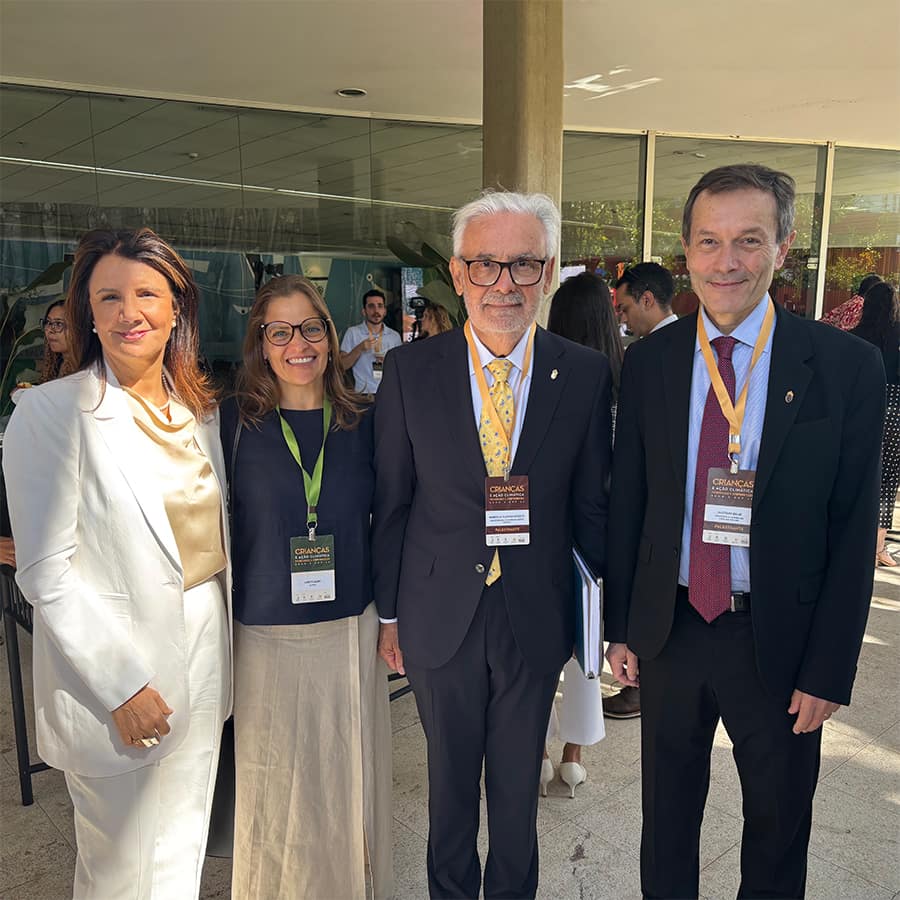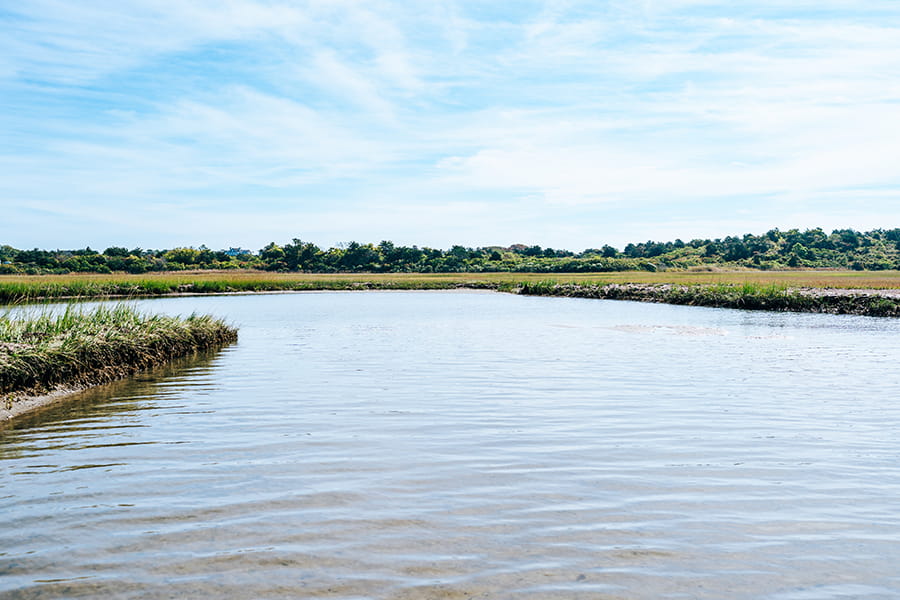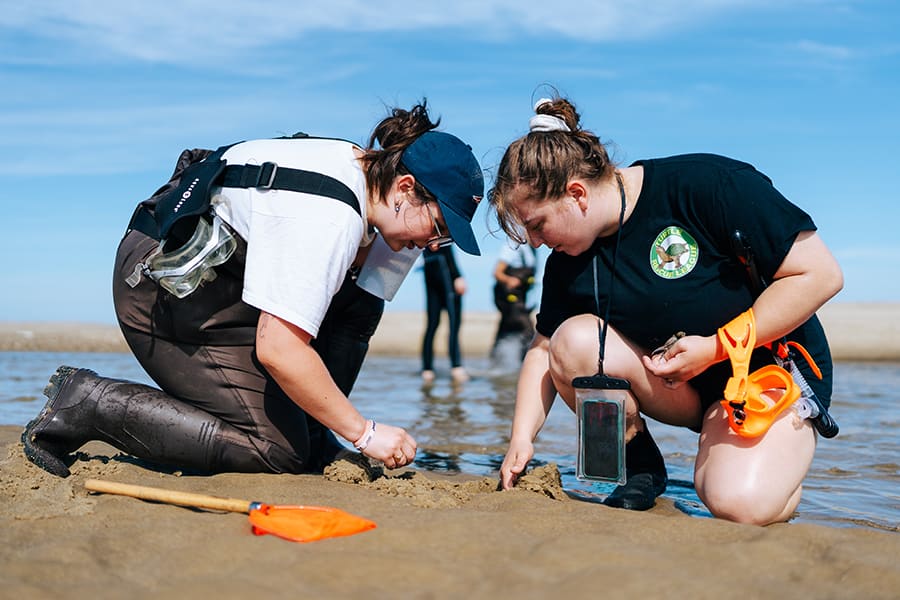Children and Climate Action
Priorities and Commitments Towards COP30
Brasília, Brazil
October 3, 2025
The summit Children and Climate Action: Priorities and Commitments Towards COP30 is a meeting promoted by Alana at the invitation of the Pontifical Academy of Science (PAS) and the Pontifical Academy of Social Science (PASS), and in partnership with the Brazilian Presidency of COP30.
Central to the Summit are mayors of cities and heads of provinces (local states) from all parts of Brazil, together with local leaders, children, youth, scientists, business representatives, Indigenous communities, and civil society stakeholders. The Brazilian meeting's mission is to approach the topic entirely from the childhood perspective, which reflects not only Alana's vocation, but also the vision expressed in the Encyclical Laudato Si and in the idea of the Apostolic Exhortation for the Rights of Children, published in February this year, during Francis' papacy.
200 public administrators, researchers, third sector leaders, federal government and COP30 representatives will be gathered. The event is part of a series of ten regional meetings on climate resilience, planned to occur in several parts of the world, whose agenda is based on the "Planetary Call to Action for Climate Change Resilience".
Summit Themes

Additional Summit Themes
- Regional Collaboration
- Equity
- Civil Society and Episcopal Conference Engagement
- Resilience Education
- Climate Impact on Children and Mental Health
- Children and Human Rights
MAST Strategy
To strengthen Brazil's climate strategy, our Summit proposes integrating the MAST framework at the heart of national and local policy design for COP30. Mitigation efforts should target the rapid reduction of greenhouse gas emissions across Brazilian regions, while Adaptation must focus on locally specific threats, such as droughts in the Northeast, floods in the Amazon basin, or urban heat stress in major cities, ensuring protective measures for the most vulnerable, particularly children. Societal Transformation calls for fundamental shifts in values and governance, engaging stakeholders from youth groups to municipal leaders to faith communities.
Building resilience consists of the following actions:
- Anticipate threats and risks;
- Prepare for threats and risks;
- Respond to threats and risks; and
- Recover and Rebound from threats and risks.
Mitigation, Adaptation, and Societal Transformation (MAST) are forming the three pillars for Climate Resilience.

Objectives of the Cooperation
- Strengthening climate resilience through partnerships, networking, science, policy and consultations with society to drive positive actions, and mobilizing and strengthening the voices and actions of decentralized governments (mayors and governors) at local, sub-national, national, and regional levels, including at COP 30.
- Special emphasis for regional summits, particularly at the Brazil summit, will focus on the importance of incorporating the voices of children to develop a global blueprint for climate resilience.
Initiatives on Climate Resilience
The Faith and Science Initiative
The Faith and Science initiative by the Vatican, in which PAS mobilized science communities, and the Governments of the UK and Italy shaped the Climate Change Conference of the Parties (COP) agenda in Glasgow and helped bring issues of water, food and agriculture for the first time high on the agenda of the COP in Sharm el Cheikh.
Resilience of People & Ecosystems Under Climate Stress
In July of 2022, PAS organized a meeting of experts, at which the MAST concept for resilience was proposed and accepted by all the experts attending the meeting in a conference declaration. This led to the realization that resilience must be built at the local level of cities and states.
Learn More About the MeetingUniversal Protocol of Resilience
The regional Summits in all hemispheres shall advance the call to Action for a universal protocol of resilience, as Pope Francis called it in his speech on May 16, 2024, to the global resilience summit attendees: “I commend the two Academies for producing a universal protocol of resilience.”
Regional summits are planned from February of 2025 to March of 2026. We aim to culminate in a final comprehensive Vatican Summit in 2026 and the release of a Universal Protocol for Climate Resilience.
Planetary Call to Action for Climate Change
A Global summit was organized jointly by PAS and PASS during May 15 - 17, 2024, assembling from all hemispheres mayors and governors to discuss and showcase innovative solutions for climate resilience. The outcome of the summit was a Planetary Call to Action for Climate Change Resilience (Pope Francis, Ramanathan, V; Suárez-Orozco, M; von Braun, J; Alford, H; Turkson, P; and 15 other authors by PAS and PASS, signed by all attendees, including all the attending Mayors and Governors. The document recognizes that the climate crisis is upon us already, and we need a new expanded approach adding to emissions mitigation to protect people and ecosystems, and need to engage with global reach at the local level. To support implementation, a series of regional summits across all hemispheres was envisioned.

Stay Resilient
Read more about the impacts of climate change in South America and around the world.
- Climate Change Impacts in South America and the Need for Urgent Joint Action (English)
- Impactos das mudanças climáticas na América do Sul e a necessidade de ação conjunta e urgente (Português)
A video recording of the ResilientBrazil Climate Summit is available to watch online.
Aiming for Lasting Outcomes Among the Partners
Beyond conference reporting and platform formations, the following tangible outcomes are envisioned:
- Concrete options for climate resilience-oriented regional and local planning that tailor climate child centered solutions to Brazil’s unique and diverse challenges, governance, and cultural contexts
- High-level policy dialogue formats for resilience actions, with emphasis on inclusion and in structures dedicated to children perspectives and science on climate change
- Adoption of implementation protocols and structured inputs for the city and regional Protocols for Climate Resilience for COP30 and for the Final Vatican Summit 2027 and COP31
- Strengthened capacity-building initiatives to support local implementation of climate resilience solutions
- Child-driven concluding statement and action items
- Mobilize public leaders to commit to prioritizing children in the face of climate challenges and to developing concrete adaptation and resilience strategies
- Increase visibility of the importance of child-centered resilience and adaptation actions in climate emergencies
- Strengthen the cross-sectoral integration of children in different adaptation policies
- Present technical knowledge, qualified local references, and exemplary child-centered adaptation and resilience initiatives implemented in Brazil, across various contexts
- Provide a forum for reflection for policymakers, children, Indigenous leaders, scientists and academics on the complexity and centrality of climate resilience, encouraging their mobilization
- Foster regional and international cooperation and knowledge sharing to develop effective, innovative, and scalable climate responses
ResilientBrazil Climate Summit Concluding Statement
Press Coverage
Learn more about the ResilientBrazil Climate Summit and its impact.



-4-Javier-1800x600.jpg)





